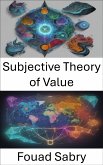What is Evolutionary Economics
There is a school of thinking in economics known as evolutionary economics, which is influenced by the field of evolutionary biology. It regards economic growth as a process rather than an equilibrium and places an emphasis on change, innovation, complex interdependencies, self-evolving systems, and limited rationality as the drivers of economic evolution. Despite the fact that it is not defined by a clear set of principles and that it brings together a variety of methods, it treats economic development as a process. The support for the evolutionary approach to economics in recent decades appears to have initially originated as a criticism of the mainstream neoclassical economics. However, by the beginning of the 21st century, it had become a part of the economic mainstream itself for the first time.
How you will benefit
(I) Insights, and validations about the following topics:
Chapter 1: Evolutionary economics
Chapter 2: Neoclassical economics
Chapter 3: Thorstein Veblen
Chapter 4: Institutional economics
Chapter 5: Rational agent
Chapter 6: Sociocultural evolution
Chapter 7: Heterodox economics
Chapter 8: Donald T. Campbell
Chapter 9: Geoffrey Hodgson
Chapter 10: Cultural selection theory
Chapter 11: Giovanni Dosi
Chapter 12: European Association for Evolutionary Political Economy
Chapter 13: Schools of economic thought
Chapter 14: Institutionalist political economy
Chapter 15: Oded Galor
Chapter 16: Technology dynamics
Chapter 17: Universal Darwinism
Chapter 18: Non-equilibrium economics
Chapter 19: Ugo Pagano
Chapter 20: Edward J. Nell
Chapter 21: Cultural evolution
(II) Answering the public top questions about evolutionary economics.
(III) Real world examples for the usage of evolutionary economics in many fields.
(IV) Rich glossary featuring over 1200 terms to unlock a comprehensive understanding of evolutionary economics. (eBook only).
Who will benefit
Professionals, undergraduate and graduate students, enthusiasts, hobbyists, and those who want to go beyond basic knowledge or information for any kind of evolutionary economics.
There is a school of thinking in economics known as evolutionary economics, which is influenced by the field of evolutionary biology. It regards economic growth as a process rather than an equilibrium and places an emphasis on change, innovation, complex interdependencies, self-evolving systems, and limited rationality as the drivers of economic evolution. Despite the fact that it is not defined by a clear set of principles and that it brings together a variety of methods, it treats economic development as a process. The support for the evolutionary approach to economics in recent decades appears to have initially originated as a criticism of the mainstream neoclassical economics. However, by the beginning of the 21st century, it had become a part of the economic mainstream itself for the first time.
How you will benefit
(I) Insights, and validations about the following topics:
Chapter 1: Evolutionary economics
Chapter 2: Neoclassical economics
Chapter 3: Thorstein Veblen
Chapter 4: Institutional economics
Chapter 5: Rational agent
Chapter 6: Sociocultural evolution
Chapter 7: Heterodox economics
Chapter 8: Donald T. Campbell
Chapter 9: Geoffrey Hodgson
Chapter 10: Cultural selection theory
Chapter 11: Giovanni Dosi
Chapter 12: European Association for Evolutionary Political Economy
Chapter 13: Schools of economic thought
Chapter 14: Institutionalist political economy
Chapter 15: Oded Galor
Chapter 16: Technology dynamics
Chapter 17: Universal Darwinism
Chapter 18: Non-equilibrium economics
Chapter 19: Ugo Pagano
Chapter 20: Edward J. Nell
Chapter 21: Cultural evolution
(II) Answering the public top questions about evolutionary economics.
(III) Real world examples for the usage of evolutionary economics in many fields.
(IV) Rich glossary featuring over 1200 terms to unlock a comprehensive understanding of evolutionary economics. (eBook only).
Who will benefit
Professionals, undergraduate and graduate students, enthusiasts, hobbyists, and those who want to go beyond basic knowledge or information for any kind of evolutionary economics.
Dieser Download kann aus rechtlichen Gründen nur mit Rechnungsadresse in A, B, BG, CY, CZ, D, DK, EW, E, FIN, F, GR, H, IRL, I, LT, L, LR, M, NL, PL, P, R, S, SLO, SK ausgeliefert werden.









